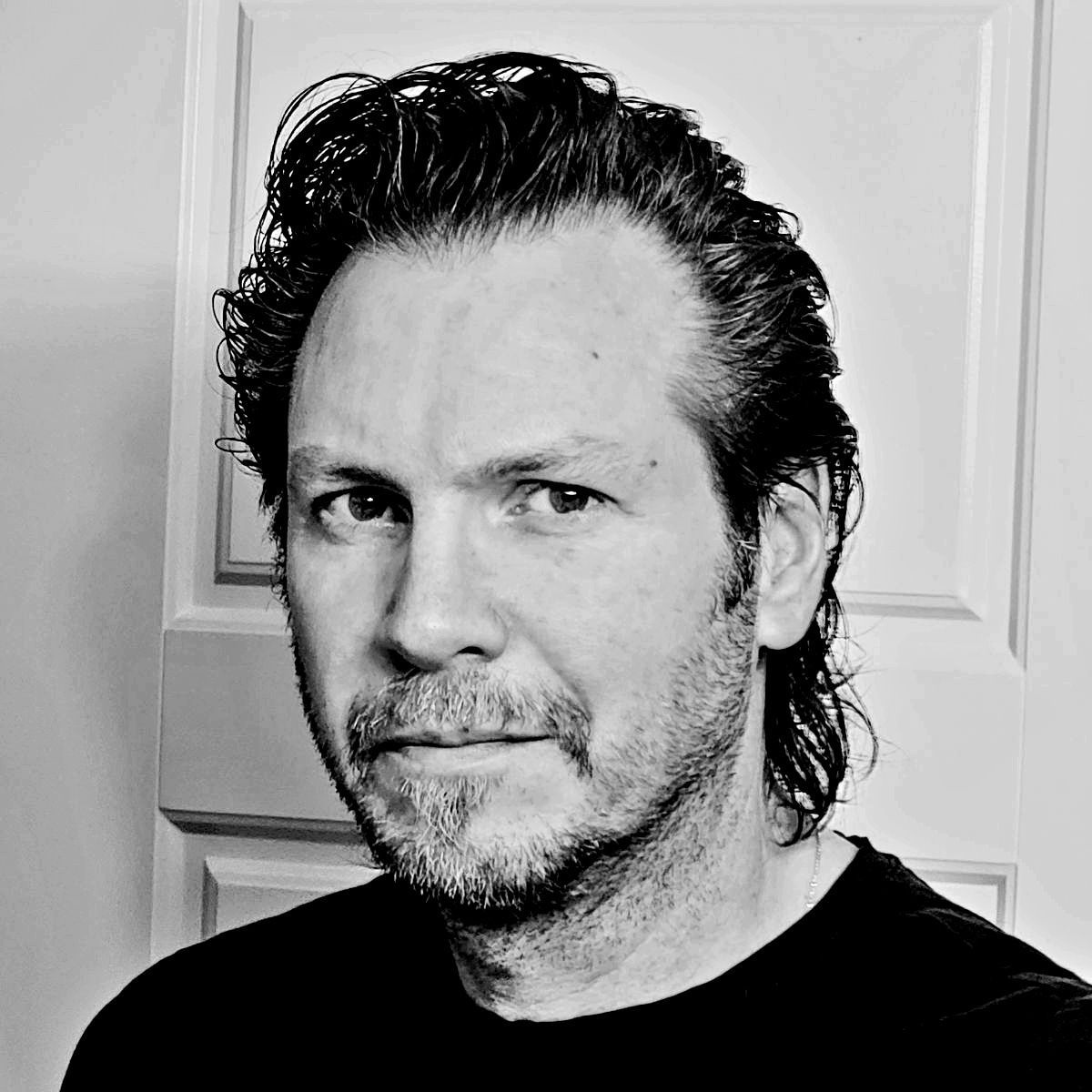We caught up with the brilliant and insightful Tobin Elliott a few weeks ago and have shared our conversation below.
Tobin, appreciate you joining us today. Can you share a story about the kindest thing someone has done for you and why it mattered so much or was so meaningful to you?
Okay, bear with me, this one is actually two stories that tie together.
Up until I was fifteen years old, I was a very shy, very insecure kid. I was too tall, too skinny, never good enough at anything. I got bullied a lot, and called some really horrible, armour-piercing names that only young kids can cannonball at you.
But, toward the end of my Grade 8 school year, at the wise old age of twelve, my English teacher, Ms. Roberts—who is one of a handful of my favourite teachers—had us write a story for…something. I don’t recall the specific assignment, but I do remember really diving into this assignment, and I wrote a post-apocalyptic story about the last human in the world. I remember being rather proud of it.
Ms. Roberts liked it enough to hang onto it to try and get it printed in that year’s school yearbook. It would have been my first publishing credential. Sadly, this was way back in the mid-70s, when print media was still done by typesetting and paste up, and she asked too late. But that wasn’t figured out until after the end of the school year. So, I wasn’t able to get my story back.
There’s a bookend to this story, but first, I have to jump ahead three years.
Between Grade 10 and Grade 11, my parents retired and we moved to the very small town of Barry’s Bay, Ontario, three hours away. I can still remember sitting in the moving truck, as we drove our belongings to our new home, and thinking, “this can be a new start. No one knows me there. When I get to school, I can change things. I can talk to people. I can be less shy. Less bullied.” It was a thought—or maybe a fervent wish—that I revisited the entire summer, right up to the day before I started my new high school in Grade 11.
And, that first day, I got to school, found my locker, found my home room, went in… and I sat down and said nothing to anyone. I was actually screaming at myself in my head. “Get up! Go say hi to someone! DO IT!” And I just couldn’t.
Then a classmate walked up to me. She stood there, looking down at me, seated at my desk, and she said, “New guy?” I nodded. She said she her name was Lori and asked if I knew anyone. I shook my head. Then she reached down, grabbed my hand, and said, “Okay, come on. I’ll introduce you around.” She asked my name as she dragged me out of the classroom and walked me down the long hallway, saying, “Hey! This is Tobin! He’s the new guy!” and… everyone smiled and said hi. It felt like an hour, but it was probably ten minutes. Then she dropped me back off to my desk, and the official school day started.
But then, a weird thing happened. The rest of the day, as we migrated from class to class, people waved, or said “Hey new guy!” and I was responding and talking to people. My plan—my fervent wish—had happened, but not because of me. It was all because of Lori.
I ended up making a good group of friends, and without the constant bullying and degradation, I flourished, and I found both my confidence and my voice. It was all because of Lori. She changed my life.
(and, as a coda to this particular story, years later, when I reconnected with Lori and told her this, she said, “I honestly don’t remember that, but it’s totally something I would have done. No big deal.”)
So, from 1975, to 1978, we now jump to 1995 and the final act of this three-part play…
By ’95, I’m almost 33. I’m married, with a daughter, and a son on the way. I’m in one of those “transitionary” jobs that pays well enough that it starts to look permanent. Life is good, but something is missing and I don’t know what it is.
And then, my English teacher, Ms. Roberts, comes walking back into my life, twenty years since I last saw her. We both recognize each other immediately, and we have a good catching up conversation. She even brings up that old story I wrote and how sorry she was that she was unsuccessful getting it published. It’s so good to see her. But it’s when she comes in a week later that she changes my life.
Because, when she comes in the second time, she hands me an envelope. And inside is my original, hand-written story, twenty years old. She says, “I always thought that was a great story. And I always hoped you’d write more, because even back then I could tell you had a gift.” Then she grabbed my hands, looked me in the eye and said, “Tobin, please believe in yourself. Write more stories.”
I know this sounds like some movie-of-the-week Hollywood ending thing, but it’s absolutely true. I’ll never forget that look on her face as she held my hands.
And that year, I made a New Year’s Resolution to start writing again. And I did. Thirty years later, I’m still writing.
So, the kindest thing anyone had ever done for me was having two women who both came along at the exact right time, and both had more confidence in me than I ever had in myself. They both gave me just enough of a push to show me there was a path in front me, if only I would take it. A path that I never would have taken on my own.
And I’d be remiss if I didn’t mention my wife of very close to 35 years now, is the one that consistently reinforces those lessons whenever I doubt myself.
The funny thing? I’m sure if you asked any of these three women—Lori, Ms. Roberts, my wife—they’d all likely say what Lori said before. “No big deal.” Because, to them, it’s just something they do.
But to me, it’s life-changing.
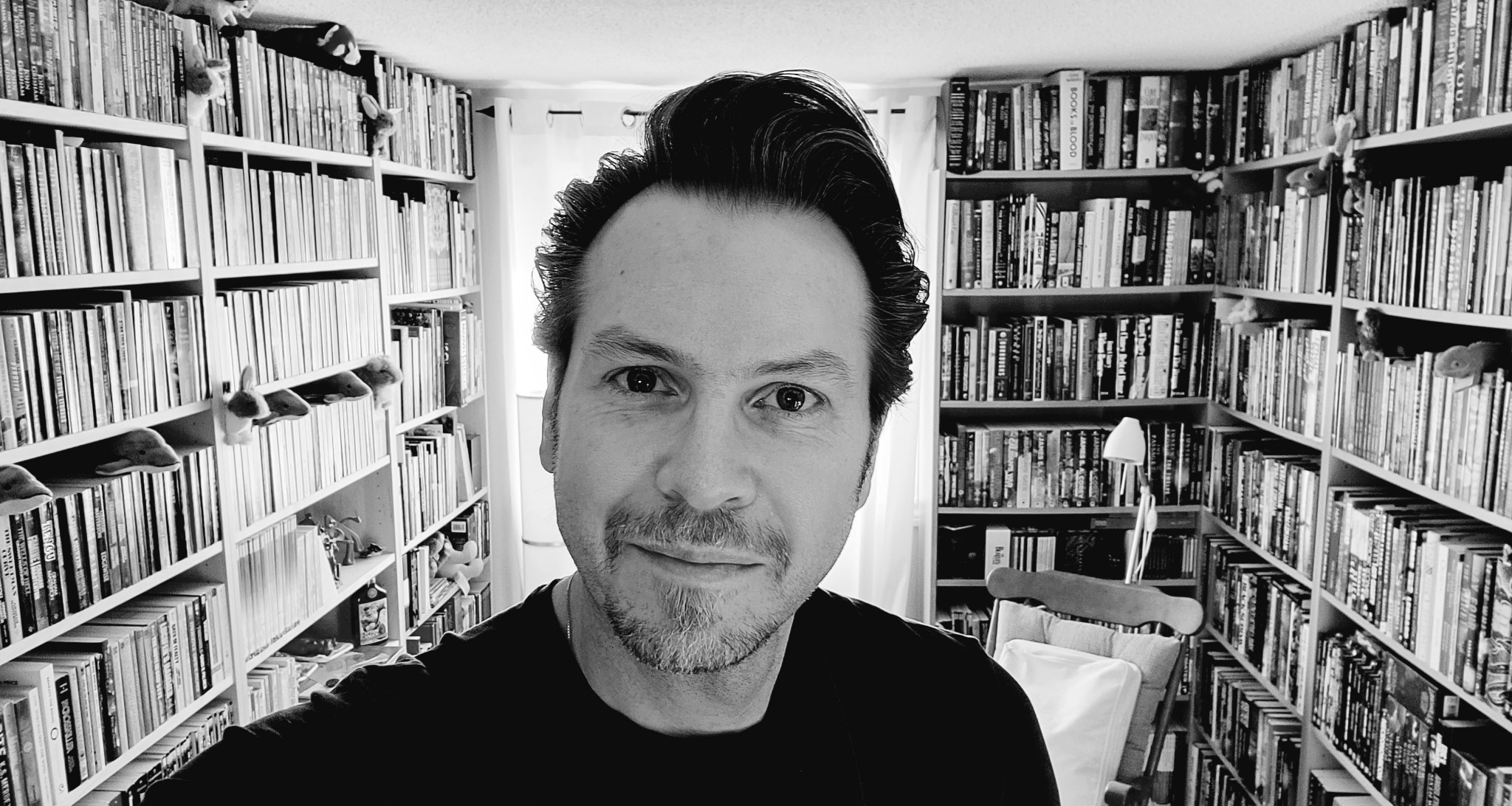
Awesome – so before we get into the rest of our questions, can you briefly introduce yourself to our readers.
As I said, though I’ve been writing since I was ten or so years old, I began to really get serious about my craft about thirty years ago, when I started writing consistently.
The two questions I get asked the most are, “Why do you write horror?” and “How long does it take to write a book?” The second one is a very long, rather boring answer, so I’ll skip it, but that first one? Let’s dig in…
So, yes, I’m a horror author. Why horror? I always go back to an answer Stephen King once gave in answer to the question, “Is horror all you write?”
His answer was, “Not on purpose, but it always seems to drift that way.” As usual, Uncle Stevie is bang on. I write horror because, for a variety of reasons, that’s the way my writing drifts.
When readers meet their favourite horror authors, they usually come away saying, “They were so nice! And funny! Not at all what I expected!” I’m a happy guy, but I’m no stranger to the horrors of the world, both real and imagined. I went through some horrors growing up, and I was also fed a steady diet of horror movies, television shows, and books. So, yeah, I drift toward horror.
Back when I decided to get serious about writing, I started out with a horror novel about a demon in a high school. I truly thought it was going to be a short story. Twenty years later, it turned out to be book two in a six-book horror series called The Aphotic.
I often say that I’m not a fan of gore, and it’s a true statement. But, you will get some gore in my books. I mean, it’s horror… bad stuff happens.
That six-book series—and the two-volume collection of short stories I lovingly titled UGLY STORIES ABOUT TERRIBLE PEOPLE DOING HORRIBLE THINGS—has lots of supernatural stuff. People with strange mental powers. Vampires. Werewolves. Demons. Evil, sentient, manipulative books. All sorts of crazy, terrible things.
But the biggest monsters in my stories are always the humans. Because WE are the scariest monsters on the block. The things we do to each other… well, yes, terrible people do horrible things. And I’ve made it my job to tell those ugly stories.
So, you’ll find monsters, but you’ll also find some really awful, very human acts of evil too. I know it can be a bit much for some readers, but for me, I have to write about the things that scare the hell out of me. Because if they get to me, they’re going to get to you, too.
I think, as a reader, what you’ll find in my books is, of course, the horror, be it supernatural, or all too real. But you’ll also find a lot of humanity, a lot of humour. I also think you’ll find some very good writing, because I take great pains to ensure the writing is as good as I can make it. And, though I never planned it, you’ll also find an underlying message that ties most of them together, and that message is to be who you are, and not who everyone expects you to be. Choose your path. Believe in yourself. I swear it’s not a heavy-handed message, because man, I hate heavy-handed messages in my fiction, but it’s there.
But, first and foremost, there’s horror. One of the biggest compliments I ever received from my writing was when a cousin of mine, whom I consider more sister than cousin, picked up my first book—BAD BLOOD—and a few days later, she texted me. “I got about halfway through the book, and I’ve just set it down. Tobin, I love you, but I can handle only so much of your madness.”
I’m sure there’s authors out there that might be upset that a reader didn’t finish the book—let alone the five that followed it—but here’s my thing: I write to horrify.
I horrified her.
So, I succeeded. Mission accomplished.
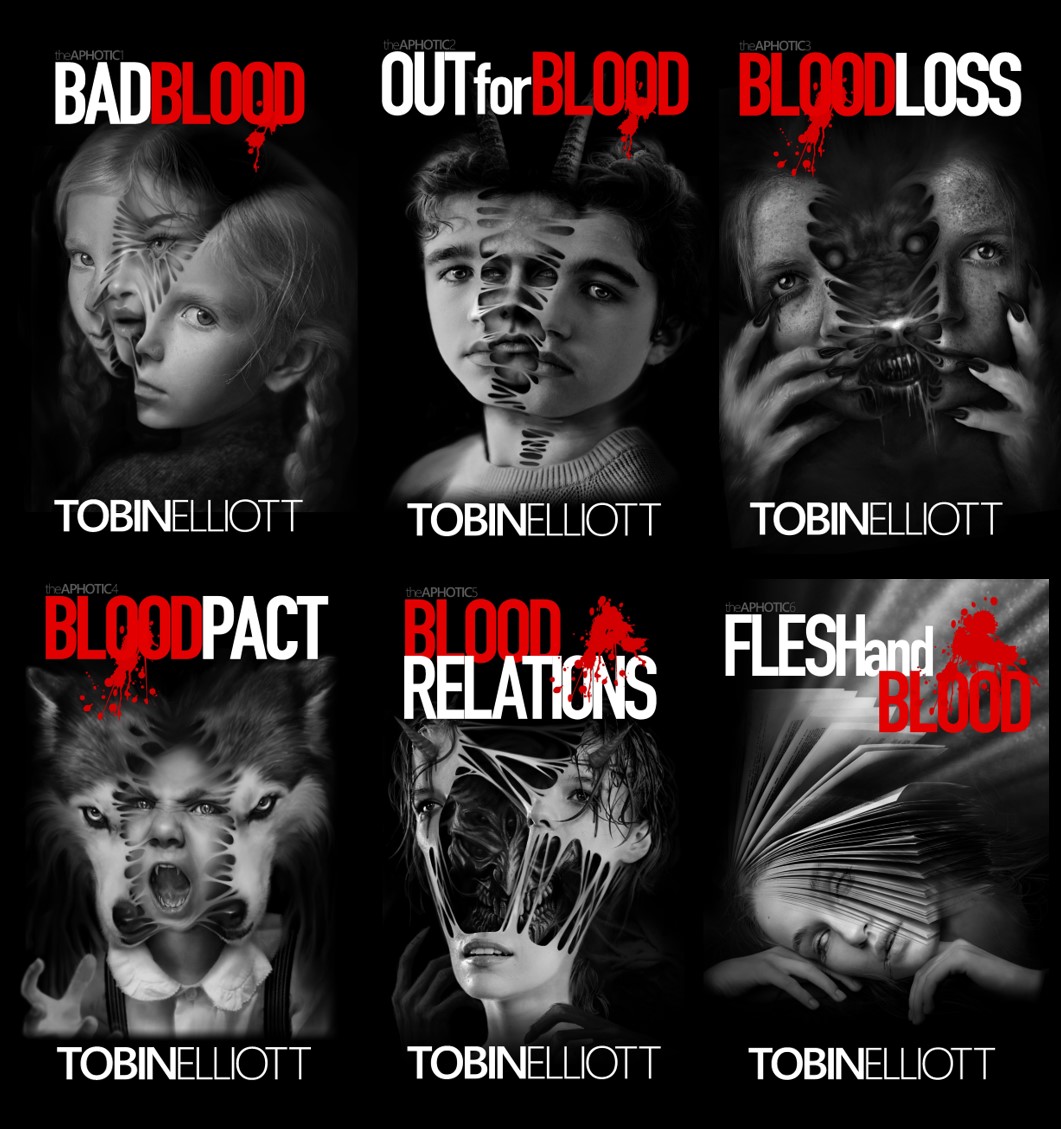
What’s the most rewarding aspect of being a creative in your experience?
This is an interesting question. The short answer is, it’s fun!
But there’s a more in-depth answer, and I think it traces back to “why do you write horror?” but I think it is applicable to any creative pursuit—writing, making movies, songwriting, performing, drawing, anything—and that is, it takes me to a wholly different place.
When I write, it always tends to start on a bit of a more formulaic manner. I get a few ideas that crash around in my head until they hit a critical mass, and a story starts to coalesce. It’s the Big Bang method of story creation, fueled by a lot of “what if?” questions. While it’s still very much a creative act, there’s a comfortable, if at times frustratingly slow rhythm to it.
Then comes the next formulaic part. Sit down at the computer and open a new file, or turn to a new page in a notebook, and away we go.
But then…
Well, then the magic comes.
When I start writing, I’m a movie director. I’m pushing my characters to hit the marks I’ve laid out on the set. I’m putting the words in their mouths. I’m cueing the special effects. But I’m also getting to know all these people who’ve taken up residence in my head.
And soon—usually within a few pages—all the cast and crew revolt and begin to ignore my instructions and commands. Instead, they assert their authority. “We know this story better than you do, Elliott, so shut up, sit back, and type. We’ll give you all you need.”
It’s a strange thing to try and explain, but when that truly creative aspect hits, the real world falls away, and I am fully and completely immersed in this fictional world that, while I’d love to say I created, that would be untrue. It’s more of a shared world where the characters bring in their own personalities, their own ways of speaking, their own thoughts. Occasionally, I can add a little bit here and there, little bits of the author that invariably creep into every story, but mostly, I get to sit back and, as my fingers type out the words, I’m less a writer and more the first reader of this unfolding story.
As strange—or possibly disengenuous—as it sounds, I swear it’s true that the majority of the time when I finish typing, or set the pen down on the notepad, I honestly wonder where the hell all that stuff I just wrote came from. Because it wasn’t in my head when I sat down. It didn’t come out of me, it flowed through me.
So, for me, the most rewarding aspect of being a creative is falling out of this world and into another one, and witnessing the creation of a new story. It’s humbling, and it’s intoxicating.
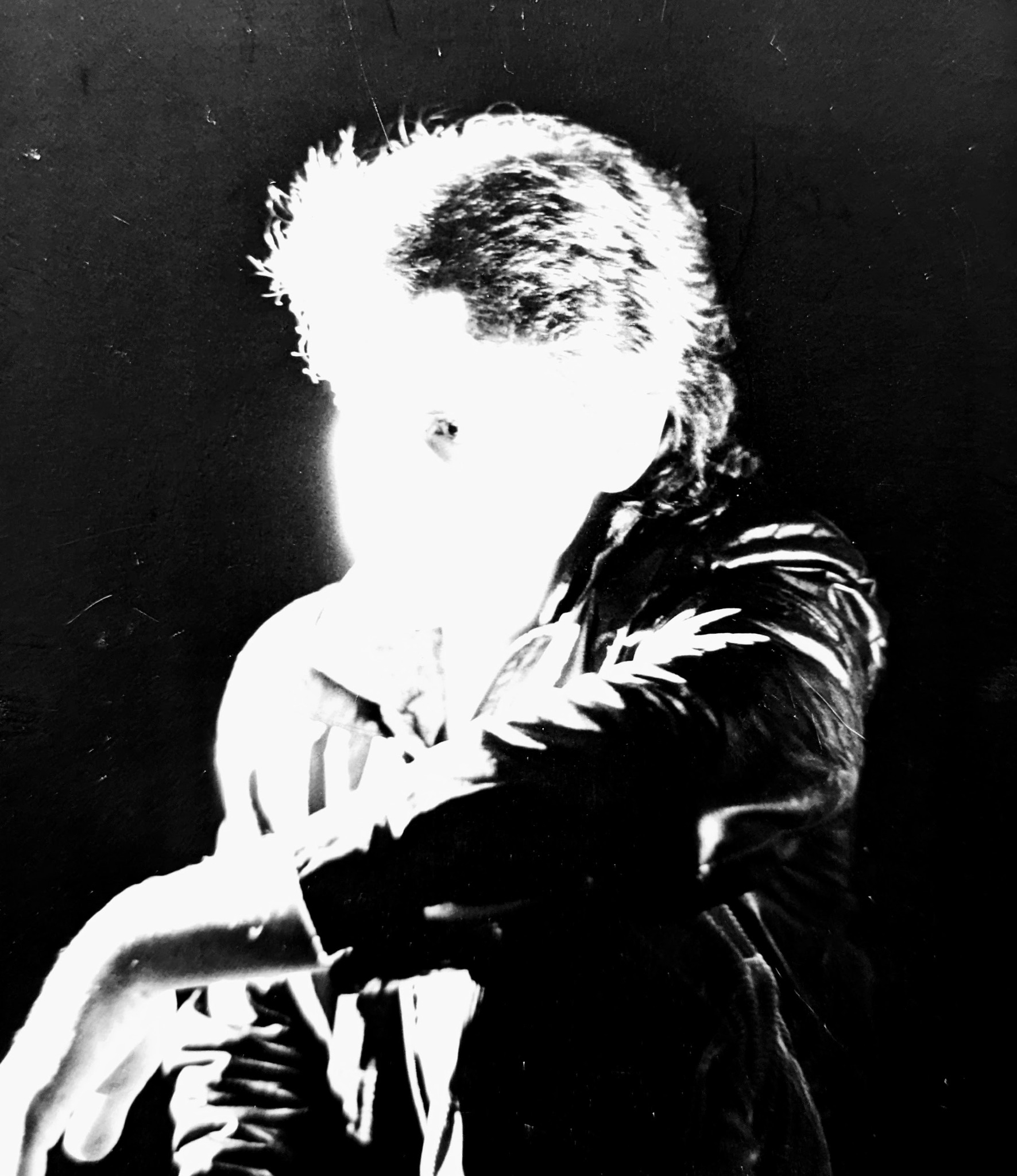
Is there something you think non-creatives will struggle to understand about your journey as a creative? Maybe you can provide some insight – you never know who might benefit from the enlightenment.
I think anyone who hasn’t experienced what I talked about above would struggle to understand exactly what’s going on, and how it feels.
But, yes, there’s also the journey to even get to where I am today.
It’s interesting, meeting someone who is, for all intents and purposes, a functioning non-creative. And I use that term with great reluctance, because I truly believe we’re all creative in our own way. I’m a word-wrangler, but so is my daughter, however where I write about terrible people doing horrible things, she writes marketing emails for a corporation to entice people to spend money. Both are creative acts.
Managing people is a creative act. Welding, or fixing any sort of tech is a creative act. There are always times when someone will have to break with tradition and forge a new—creative—path. Those that are incapable, or unwilling to do so are the true non-creatives.
Having said that, I will speak to those specifically outside of my narrow fiction genre.
The first thing is, it took a long time to find my tribe. When I started writing, I would attend a large writing collective (well over 300 members, and about 100 would meet for breakfast once a month), and we would sit at large tables of 8 or 10. And every time everyone introduced themselves, and it came around to me, and I uttered the word “horror” the other seven mouths at the table would pucker into disapproving sphincters.
And it made me feel diminished and unimportant. Because, the most standard response back was “Oh I don’t like all that Friday the 13th stuff.” …and they just didn’t care that I didn’t write slasher.
So, there was the general disdain at my chosen genre from other creatives.
Next was dealing with either the utter disinterest or disdain at most of those close to me in regard to it. Friends who “love” horror didn’t care that I wrote it. Family didn’t understand it. One actually said, “I don’t know how you can write horror,” to which my response was, “and yet, you read true crime constantly. At least my stuff never actually happened!”
So there was the disdain or disinterest from loved ones.
Eventually, I found my tribe, but then I found that maybe I wasn’t looking for a tribe, but more a few close friends who both supported me and also slapped me down when I was a little too full of myself, or held out a hand to pull me back up when I’d lost all confidence. I still have those friends to this day.
Really, for the most part, the creative act is a solitary one. I don’t need a lot of maintenance, but it’s heartening at times to meet with others who have gone—or are going through—the same things and we can commiserate.
You don’t need a tribe. You just need a rock solid support system that you can call on, or count on, when needed.
The upside is, when your work gets out there, the other thing that helps is those who end up loving what you do, and share that with you. It’s incredible to know that something that started as a simple thought in your head eventually found its way to someone who wanted or needed it, and your creative act resonated deeply with them.
And that? That’s something money can’t buy. And it’s also something that can’t necessarily be adequately communicated to a non-creative.
Contact Info:
- Website: https://tobinelliotthorror.com
- Other: https://linktr.ee/TobinElliott
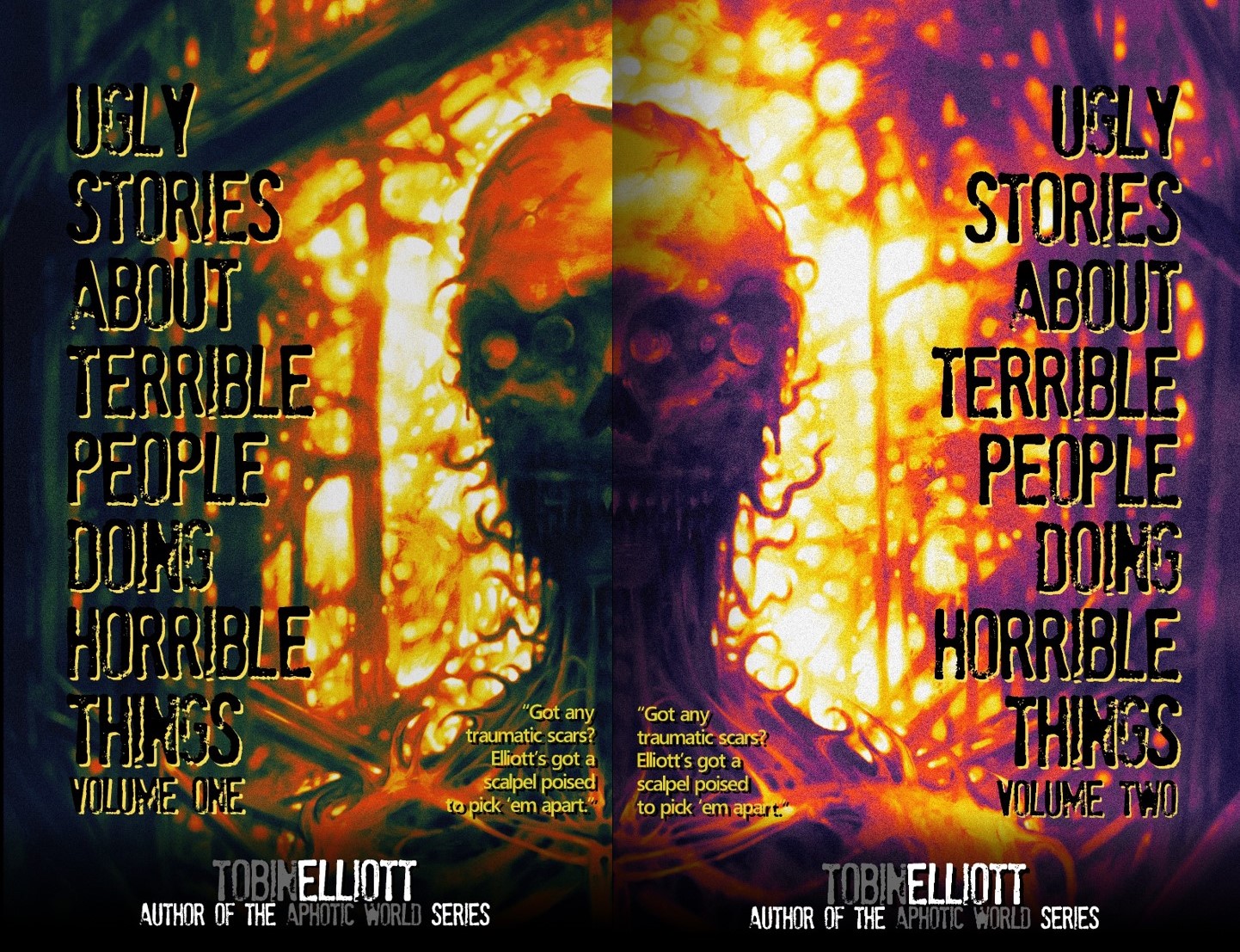
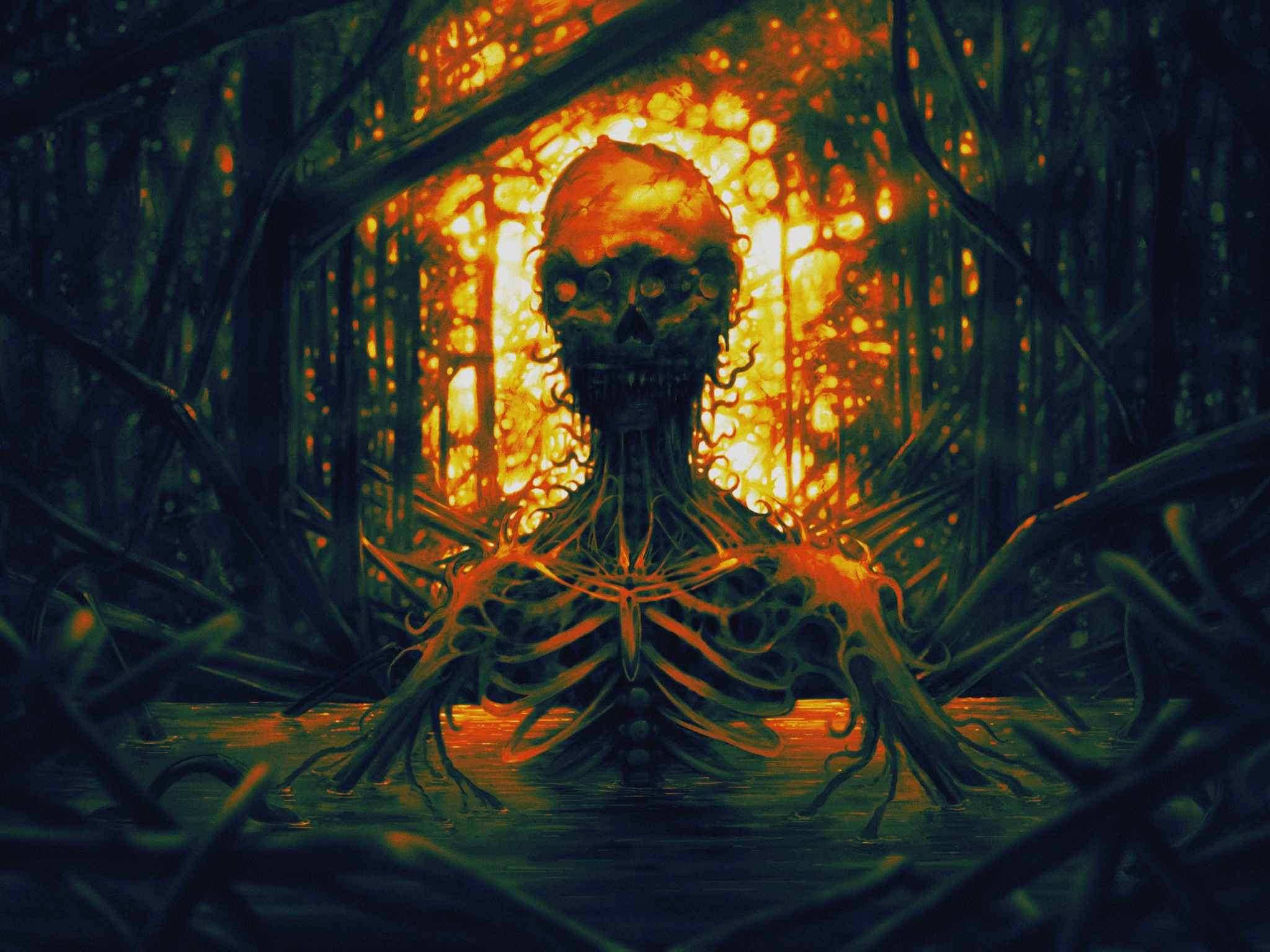
Image Credits
All book covers by Camille Codling


